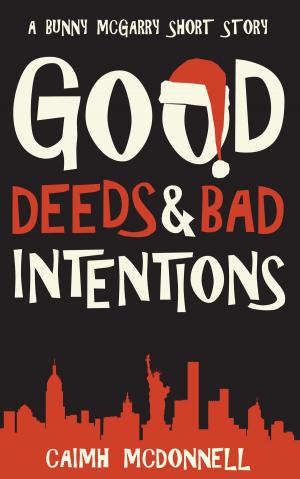Quitting
Nonfiction, Health & Well Being, Self Help, Addiction, Substance Abuse, Fiction & Literature| Author: | Glenn Morison | ISBN: | 9781466021273 |
| Publisher: | Glenn Morison | Publication: | November 25, 2011 |
| Imprint: | Smashwords Edition | Language: | English |
| Author: | Glenn Morison |
| ISBN: | 9781466021273 |
| Publisher: | Glenn Morison |
| Publication: | November 25, 2011 |
| Imprint: | Smashwords Edition |
| Language: | English |
“I loved it. You read it and you laugh and say 'this is goofy' but a half hour later you feel like something is wrong and you can't get the poor guy out of your head.” (Miriam Toews)
On January 1, 2005 Robert Seaton, a professor of Economics, ventured forth on a courageous yet curious quest to simplicity by pledging to "quit something new each and every day" for 365 days. Quitting is Robert Seaton's journal of that year. It begins as a measured record of what can be quit, examining both the reasons for and the impacts of each choice. Very soon into his experiment, Seaton makes choices without properly foreseeing their implications. Pre-existing problems in his life are brought to the fore with his earnest attachment to each day's resolution.
In May, Seaton begins a four-month sabbatical in Cooperstown, New York. Unencumbered by his teaching load, his family responsibilities or even the presence of friends and acquaintances, he spirals into darker and darker quarters. The interesting characters we meet through him are discarded one by one as Seaton's quest of quitting blinds him to both the obligations and opportunities that are before him.
Unforeseen circumstances cut his sabbatical short and take Seaton to a rooming house in Washington, DC where his journal becomes "anti fiction." His shrunken life inches along with no perceivable purpose or consequence. We are left to read and argue with his ultra sparse yet self-congratulatory insights into how far he has come in his year of examining the work and power of quitting.
An innocent brush with the law in November brings Seaton back home to Canada and the seemingly insurmountable challenges of reintegrating with his home, his family, his work and the entire life he had lived in relative comfort not even a year earlier. He re-summons his "inner Economist" and weighs his options before making a number of choices, which, true to his professional training, show measured success. Quitting for the sake of simplicity became, for Seaton, a journey into a troubling complexity.
Seaton's story is delivered through three voices. When Robert's wife, Virginia Howard, finds Robert's diary after his death in 2007 both she and Robert's best friend, Glenn Morison, determine it appropriate to publish the writings. They offer it in its original form while adding their own commentary to help others glean lessons and insight from Robert Seaton's peculiar path into a new life.
“I loved it. You read it and you laugh and say 'this is goofy' but a half hour later you feel like something is wrong and you can't get the poor guy out of your head.” (Miriam Toews)
On January 1, 2005 Robert Seaton, a professor of Economics, ventured forth on a courageous yet curious quest to simplicity by pledging to "quit something new each and every day" for 365 days. Quitting is Robert Seaton's journal of that year. It begins as a measured record of what can be quit, examining both the reasons for and the impacts of each choice. Very soon into his experiment, Seaton makes choices without properly foreseeing their implications. Pre-existing problems in his life are brought to the fore with his earnest attachment to each day's resolution.
In May, Seaton begins a four-month sabbatical in Cooperstown, New York. Unencumbered by his teaching load, his family responsibilities or even the presence of friends and acquaintances, he spirals into darker and darker quarters. The interesting characters we meet through him are discarded one by one as Seaton's quest of quitting blinds him to both the obligations and opportunities that are before him.
Unforeseen circumstances cut his sabbatical short and take Seaton to a rooming house in Washington, DC where his journal becomes "anti fiction." His shrunken life inches along with no perceivable purpose or consequence. We are left to read and argue with his ultra sparse yet self-congratulatory insights into how far he has come in his year of examining the work and power of quitting.
An innocent brush with the law in November brings Seaton back home to Canada and the seemingly insurmountable challenges of reintegrating with his home, his family, his work and the entire life he had lived in relative comfort not even a year earlier. He re-summons his "inner Economist" and weighs his options before making a number of choices, which, true to his professional training, show measured success. Quitting for the sake of simplicity became, for Seaton, a journey into a troubling complexity.
Seaton's story is delivered through three voices. When Robert's wife, Virginia Howard, finds Robert's diary after his death in 2007 both she and Robert's best friend, Glenn Morison, determine it appropriate to publish the writings. They offer it in its original form while adding their own commentary to help others glean lessons and insight from Robert Seaton's peculiar path into a new life.















